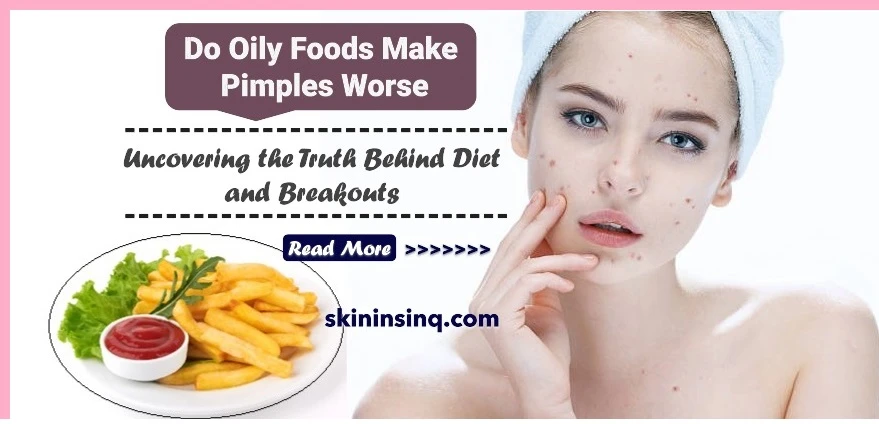Do Oily Foods Make Pimples Worse? Uncovering the Truth Behind Diet and Breakouts
Do Oily Foods Make Pimples Worse? Uncovering the Truth Behind Diet and Breakouts
For years, people have believed that eating oily or greasy foods directly causes pimples. It's a common assumption that the oil on your plate somehow translates to oil on your skin. But is this actually true? While the connection between diet and breakouts is complex, it’s important to separate fact from myth when it comes to oily foods and pimples.
Understanding Pimples and What Causes Them
Pimples form when pores become clogged with oil (sebum), dead skin cells, and bacteria. Hormonal changes, genetics, and lifestyle factors—like stress and skincare routines—play a significant role in acne development. Diet can also influence skin condition, but not always in the way people assume.
The Myth of Greasy Food and Skin Oil
Many believe that eating oily foods like pizza, fries, or fried chicken leads to more pimples. However, there’s no strong scientific evidence showing that dietary oils directly cause breakouts. The oil from food doesn’t enter the bloodstream in a way that makes your skin oilier. Your body processes fats and uses them for energy and cell function—not to produce sebum on your face.
That said, touching your face with greasy hands after eating oily foods can clog pores, especially if you already have acne-prone skin. It’s also possible for oily residue from food preparation environments, such as working in a fast food kitchen, to worsen acne when skin is exposed to greasy vapors.
The Real Diet Connection: It’s Not Just About Oil
While greasy foods may not be the direct cause of pimples, the type of fats consumed—and the overall quality of the diet—can influence skin health. For example:
-
Trans fats and saturated fats, often found in processed and deep-fried foods, may increase inflammation, which is a key factor in acne development.
-
Diets high in refined carbs and sugars (like white bread, soda, and sweets) spike insulin levels and may stimulate more sebum production.
-
Dairy products, which are sometimes consumed with greasy foods (like cheese on pizza), may also influence hormone levels and aggravate acne in some individuals.
So, it’s not the oil alone, but the overall inflammatory and hormonal impact of certain foods that can worsen pimples.
Healthy Fats vs. Harmful Fats
Not all fats are bad for your skin. In fact, healthy fats such as omega-3 fatty acids—found in fish, flaxseeds, walnuts, and chia seeds—can reduce inflammation and may help improve acne. The goal is to minimize unhealthy fats while incorporating skin-friendly nutrients into your meals.
Conclusion
While oily foods do not directly cause pimples, they can be part of a larger pattern of poor dietary habits that may worsen acne in some individuals. The key lies in moderation and balance—limiting highly processed and greasy foods while focusing on a diet rich in whole grains, vegetables, lean proteins, and healthy fats. If you're prone to breakouts, paying attention to your diet—along with good skincare habits—can make a meaningful difference in your skin’s appearance.

Related Blog
Can People with Dry Skin Also Have Acne? Understanding Breakouts Beyond Oily Skin Types
Aug 2, 2025 by Admin
General Acne
What Causes Oily Skin and Can It Be Managed Naturally? Exploring Root Causes and Gentle Solutions
Aug 2, 2025 by Admin
General
Does Popping Pimples Always Make Acne Worse? The Risks and Realities of Squeezing Breakouts
Aug 2, 2025 by Admin
General Acne
Does Chocolate Cause Pimples but Not Acne? Debunking the Sweet Myth About Skin Breakouts
Aug 2, 2025 by Admin
General Acne